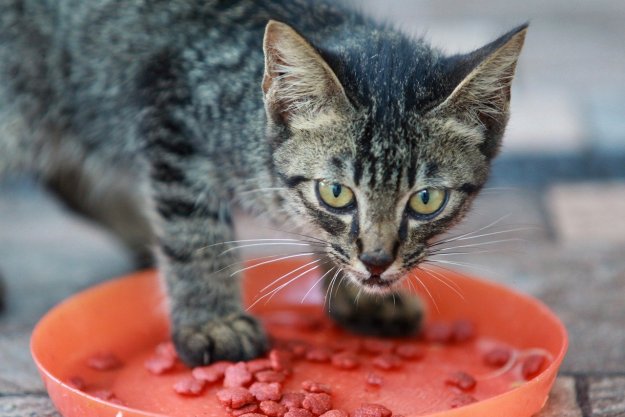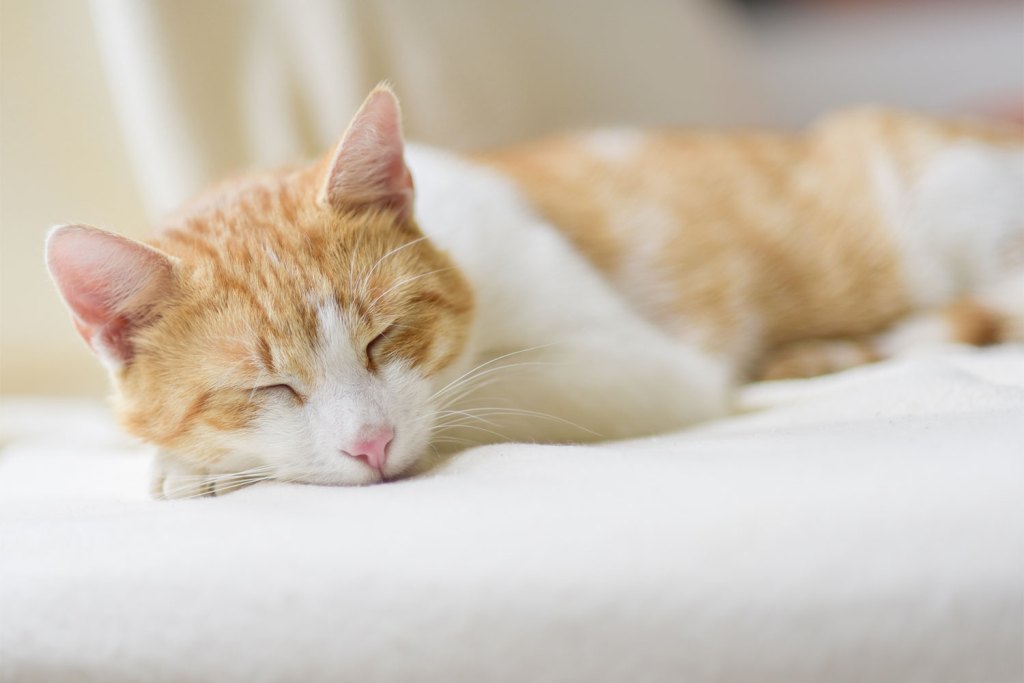
Have you noticed that when you go to sleep, your cat automatically heads to the foot of the bed and curls up by your feet? It’s no mistake, and it’s not your cat giving you the cold shoulder, either. This is a deliberate decision on your kitty’s part, and there are many reasons why they might choose to sleep there instead of curling up on your stomach or by your shoulder. In fact, if your cat sleeps by your feet, you should take it as a compliment and feel flattered.
So, why do cats sleep at your feet? It’s a mix of your cat’s affection for you, a feeling of safety, and even the body heat you generate that play into your cat’s decision to sleep at the foot of the bed.
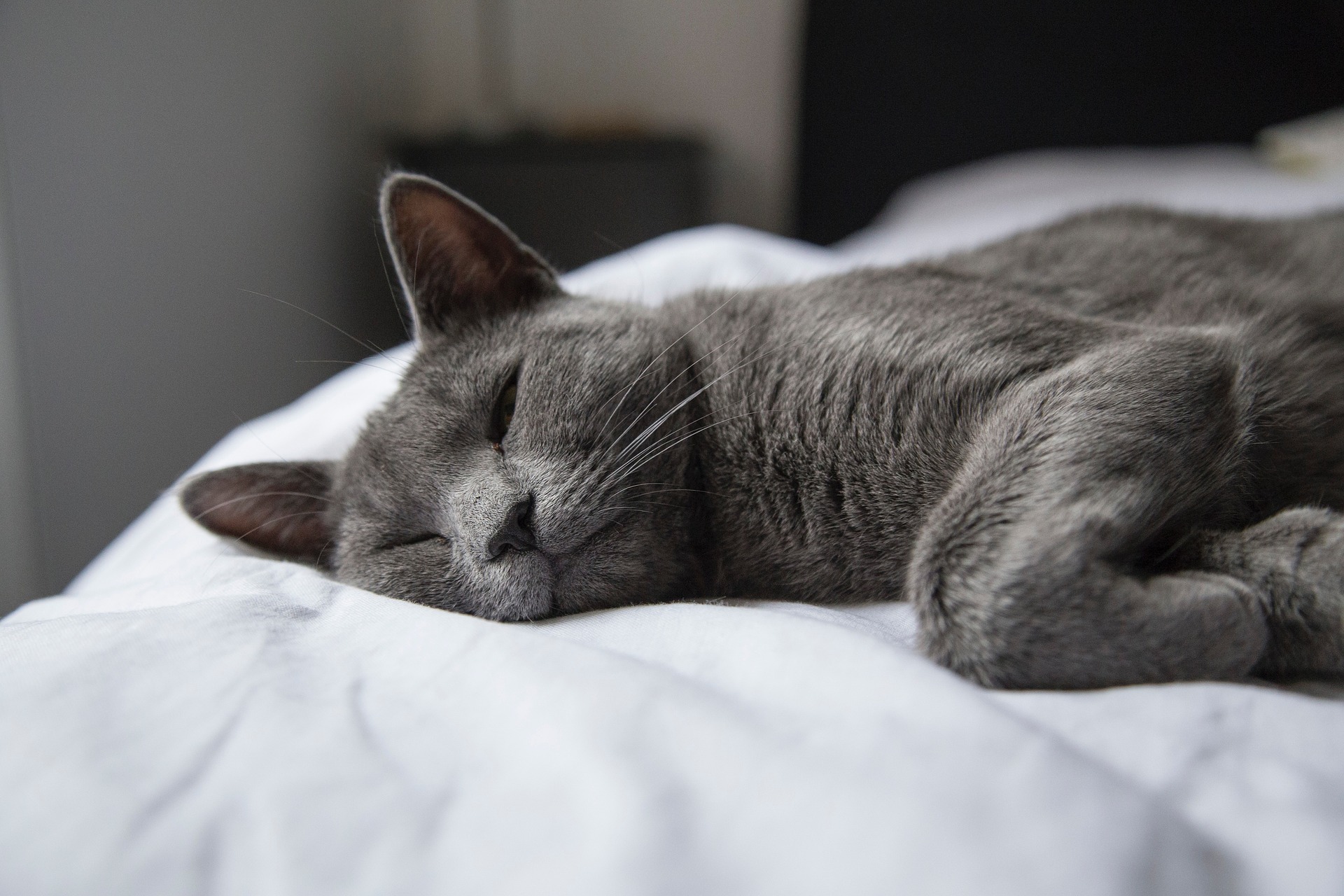
Why do cats sleep at your feet? The reason is sweeter than you think
Cats sleep at your feet for many reasons. Martha Stewart asked Kate Luse of Healthy Cattitude Cat Behavior Consulting and Nicole Savageau, a veterinarian for The Vets, who explain that a cat might seek you out for extra security when they sleep. Your cat is especially vulnerable while catching z’s, so they might pass out at the foot of the bed because they trust you and feel secure in your company. Your feline friend’s instincts may tell them to seek out a spot where they’ll have a clear escape route should any danger present itself, not to mention a good vantage point, which they get from the edge of your furniture rather than the middle of it.
Your cat might also choose to sleep by you because of the connection you’ve created with your furry buddy. Our fur babies recognize people who feed and care for them, and while your cat can be independent, their social side might come out when they seek you out at night. Your four-legged friend likely recognizes that you’re the one who gives them attention, and sleeping by you might be an effort to return that affection. Remember, love and affection can look different for every individual — human and feline!
According to Vet Explains Pets, your cat might sleep at your feet to protect you. Cats are naturally protective of their home and belongings, and your pet can be ready to wake you up in case of any danger. In a way, sleeping by your feet is her way of looking over you.
Your sleepy mouser might also choose that sleeping spot to mark their territory: you. Cats may feel that they own us, and sleeping by you is a way to demonstrate that to other cats.
Lastly, it’s also possible that your cat chooses to sleep at your feet because it’s a spot where they’re less likely to be disturbed. Most of the movement humans do as we sleep occurs around our torsos. You might move your arms and rearrange the pillow, but your feet probably tend to stay pretty still. Your cat may have caught onto this and decided that the best way to get some quality sleep is to pick the location in the bed that’s the least disturbed. The foot of the bed may also be more appealing because it’s flatter. There’s less chance of blankets getting lumped up there, and your cat might find that there’s more room, too.
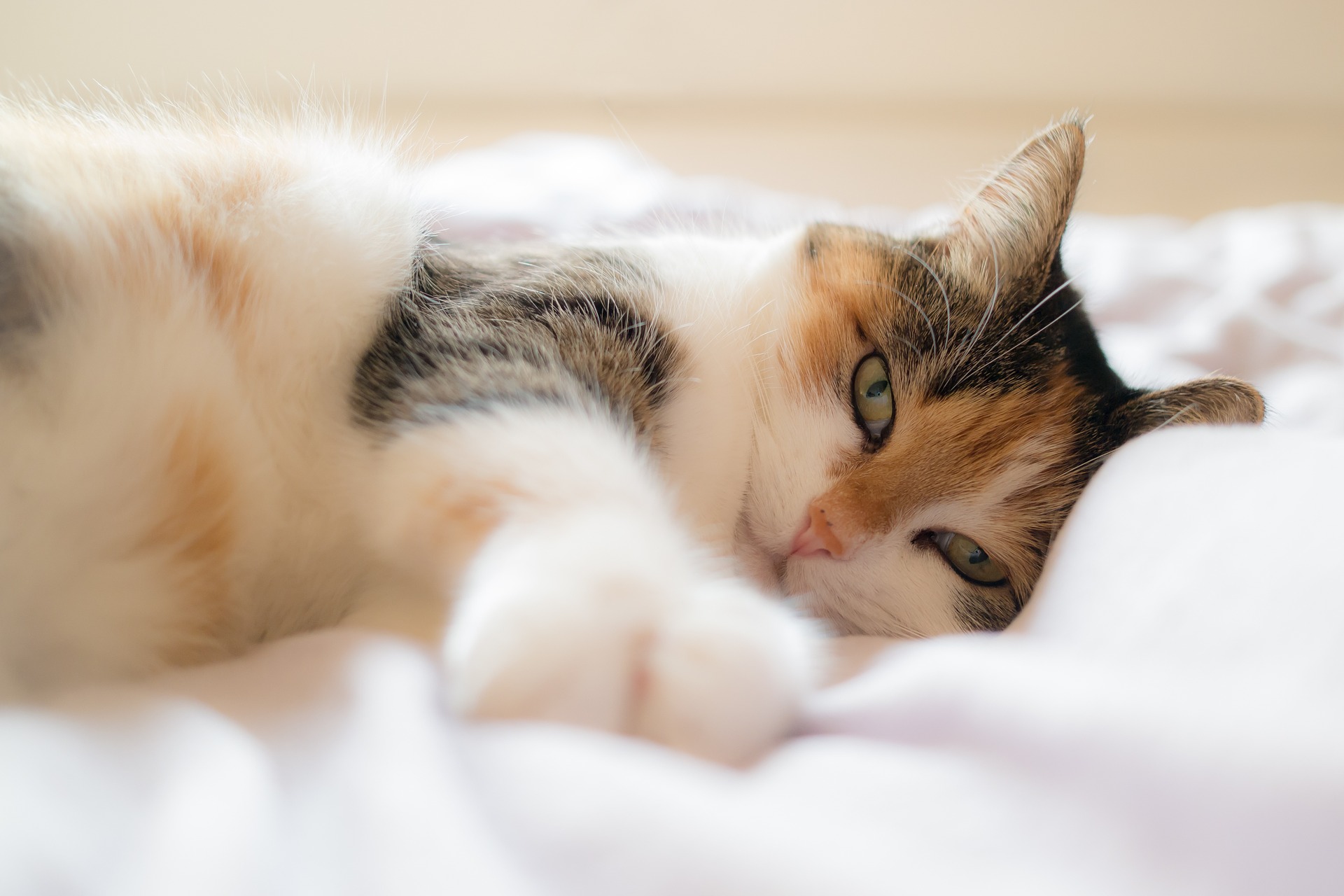
Why do cats sleep on top of your feet? These reasons make sense when you think about it
It’s one thing for your cat to sleep at your feet, but another when they decide to sleep on top of your feet. Vet Explains Pets notes that if your cat sleeps on your feet and ankles, they might seek you out as their personal heater. Cats might move to sleep on or next to you during the night, then return to your feet as the temperature in the room drops and they want more heat. While there are plenty of reasons why cats want to sleep close to you, sometimes it comes down to practicality and staying warm.
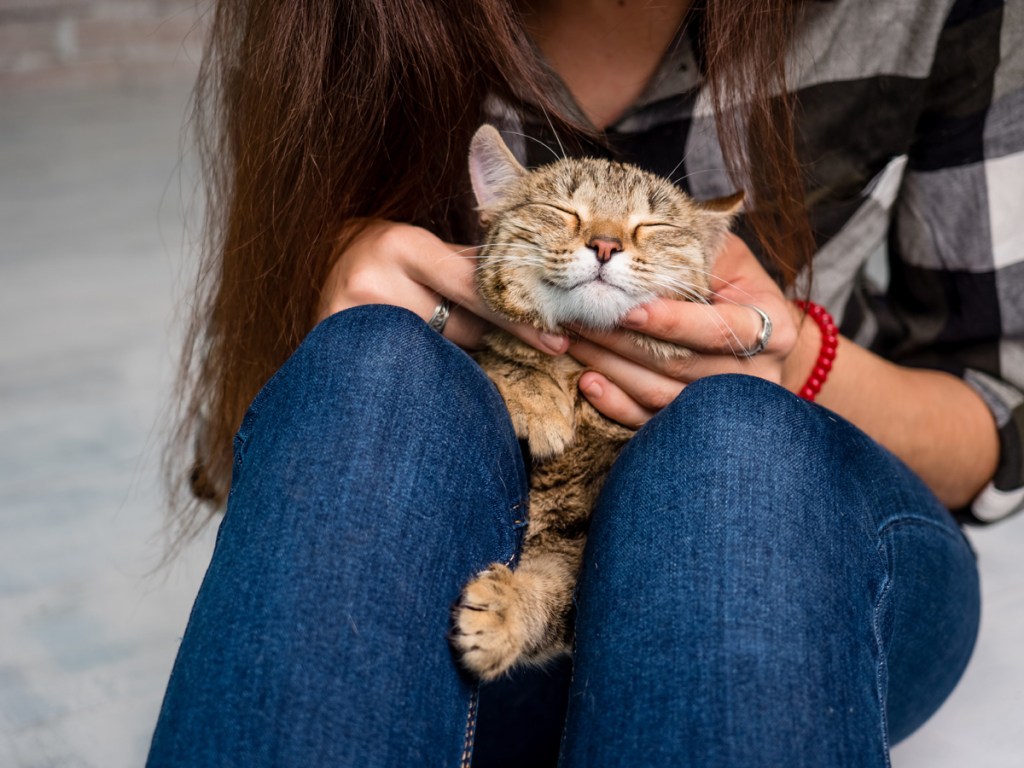
How do you tell if your cat is bonded with you?
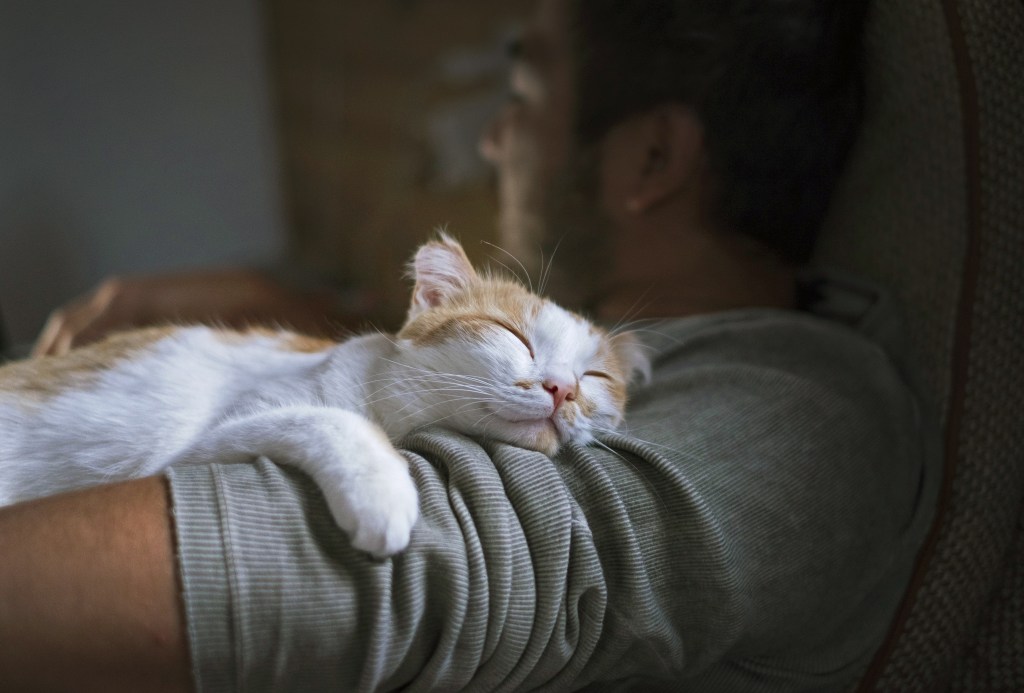
Pros and cons of letting your cat sleep at your feet
Having your cat sleep at your feet can be pleasant and reassuring, especially during the winter when you have a warm, purring ball of fur by your toes as you doze off. The closeness will also help strengthen the bond you have with your feline friend, and it can be so sweet to wake up to your best friend by your side.
However, depending on how well your cat sleeps through the night, having your cat in bed with you could also be a distraction. Some playful cats might find it tempting to pounce on your toes during the night, and trying to avoid accidentally kicking your animal can result in stiffness and discomfort. You’ll have to make a compromise for those prime nighttime snuggles!
You might have better luck convincing your cat to sleep on a cat bed in your room or providing lots of stimulating playtime before bed to encourage them to sleep through the night. Every home has its own sleeping arrangement that works best for them, and you’ll find your own in no time. What are a few sleepless nights compared to a lifetime of naps and cuddles with your best furry friend?
Editors' Recommendations
- These useful tips can help you support your senior cat’s health
- Why do cats fight? They’re not just being jerks
- Why do cats roll in dirt? 10 reasons for their dust bath
- Is your cat obese? 5 ways to help them slim down
- Why do cats eat plastic (and when you should be concerned)?
